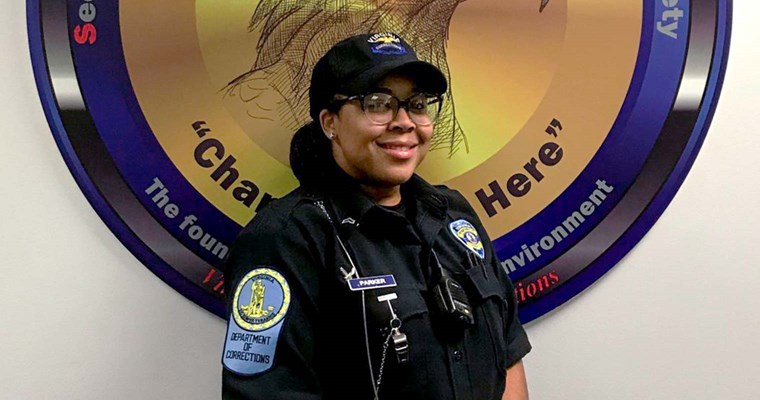Agency News

Treatment Officers Conference Offers Opportunities to Share, Learn, Grow
December 17, 2020
The inmate carried books of poetry, reading them whenever time allowed. Sometimes he sat thoughtfully, then scribbled notes furiously. Eventually, Treatment Officer Yashaunty Parker asked him about his reading and writing. The man expressed interest in becoming a poet. She encouraged him and helped him think of ways to share his words with other inmates.
With her help, he did, and his confidence grew. When he left St. Brides Correctional Center, he pursued a vocation using his words. Today, he is a performance artist and can make as much as $100 per hour for his efforts.
Sometimes all it takes is for a Treatment Officer to offer proper encouragement.
Officer Parker, who recently won the Mark Gornik Excellence in Reentry Award, was one of more than two dozen Treatment Officers who attended the annual Treatment Officer Conference in mid-November. This year, the conference was a day-long virtual event focused on “Celebrating the Hero Within.”
“We are the front line of communication and spend the most time with the inmates. We model the way for not only the inmates but other staff members as well,” said Treatment Officer Parker of St. Brides Correctional Center.
“We consistently make it a priority to interrupt the inmate’s criminal thinking with short interventions that encourage them to reflect upon their past choices. This will help them to understand where they went wrong so that they change their behaviors and make better decisions in the future,” Officer Parker added.
Treatment Officers act as change agents and rely on a variety of evidence-based practices and programs, according to Treatment Officer Bobby Cartwright of Bland Correctional Center. Techniques Treatment Officers use such as dialoguing and motivational interviewing help inmates tremendously, as do programs that facilitate improvement and cognitive change including Thinking for a Change, Victim Impact, PREPS, and Resources for Successful Living.
Inmates need programs to offset various problems that brought them to prison, and many lack of family support during their incarceration.
Sometimes, a little extra attention goes far to improve a situation. Officer Cartwright noticed that one of his charges was especially anxious about his impending return home. From that point forward, Officer Cartwright scheduled regular meetings with the man. “Until he got out I would have him come down to the office about three times a week to talk about his fears,” Officer Cartwright said. They kept the conversations positive and focused on ways of tapping into available community resources.
By the time he left, the inmate had calmed, and now, many months after his return to his community, Officer Cartwright has learned that the former inmate is employed, married and doing well in his reentry journey. During the conference, the officers shared experiences and offered support to each other. The conference featured an array of speakers and included a digital break out session that allowed attendees to improve their connections. Near the end of the conference, attendees heard from a special speaker, former inmate, Travis May, who has fared well since his pardon in early 2018. He emphasized the importance of the humanity of VADOC employees and offered special praise for the Treatment Officers. They “represented calm,” he said. “They represented decency to me. They are some of the most precious people (who work for) the Department of Corrections,” he said.
Organizers considered the conference a great success. “This annual event brings together Treatment Officers from across the Commonwealth and gives them an opportunity to learn together, share information, recognize accomplishments and support one another,” said Eastern Region Cognitive Program Manager Sahib Brown.
